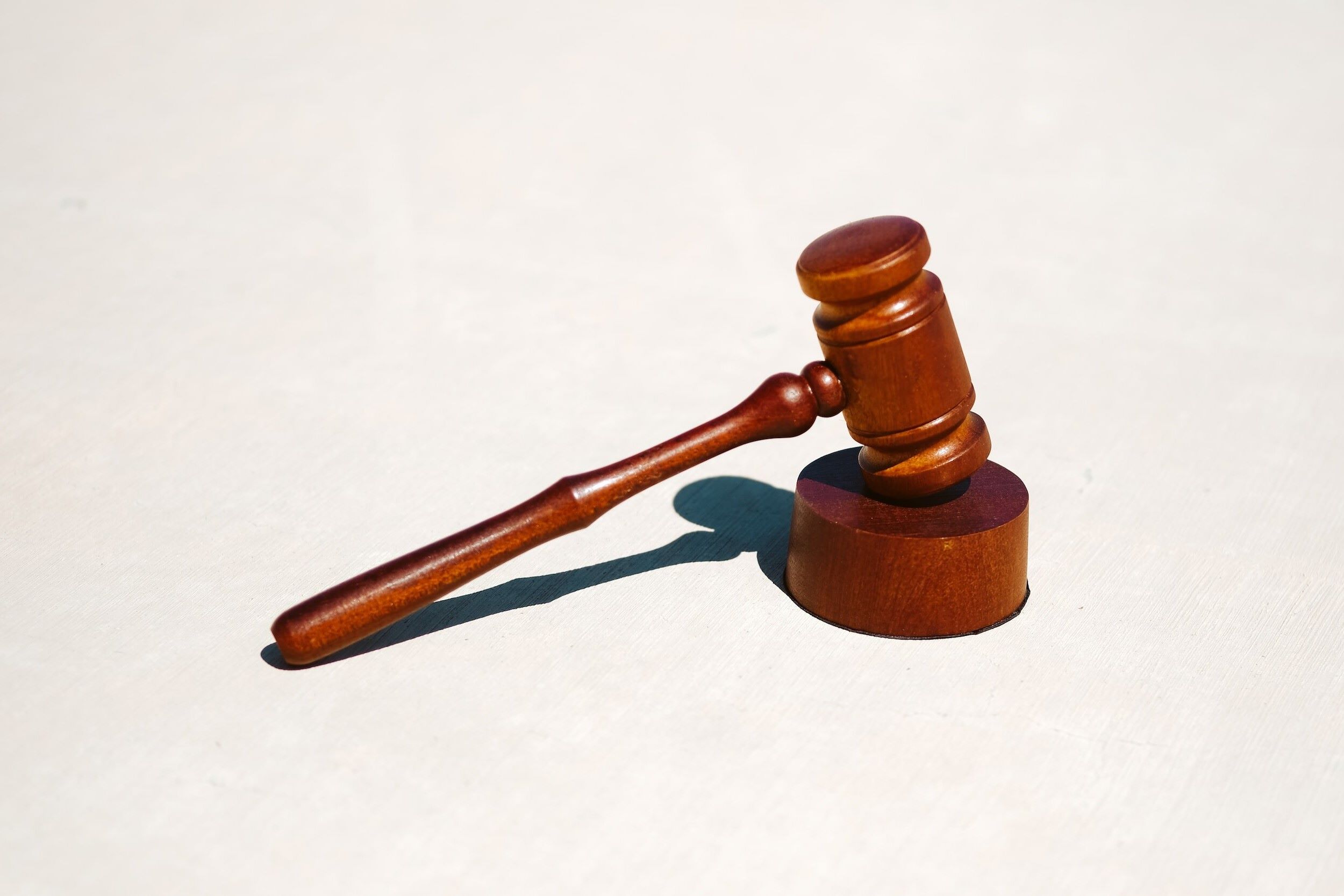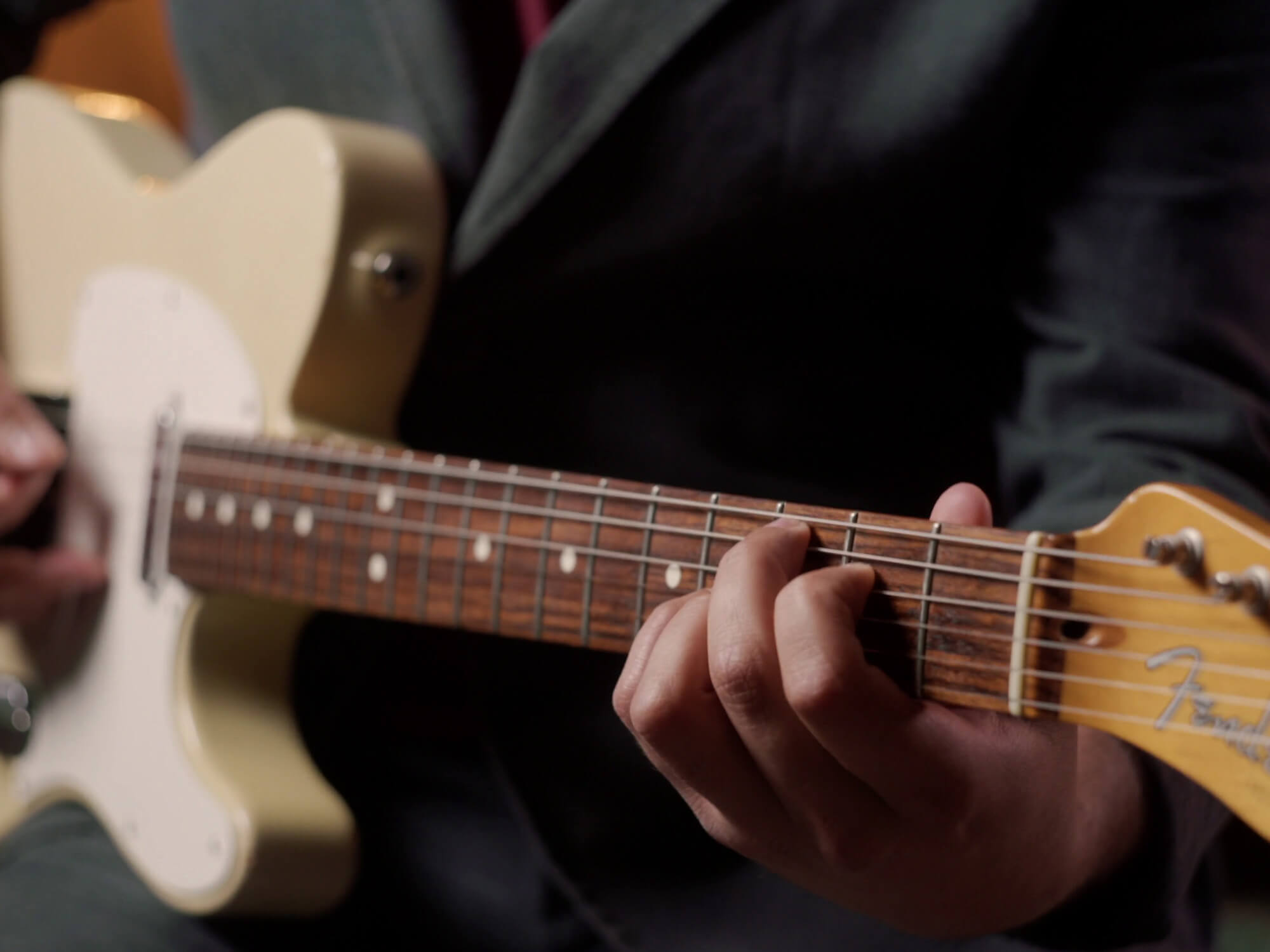Home>Law and Legal Advice>How To Get A Debt Lawsuit Dismissed


Law and Legal Advice
How To Get A Debt Lawsuit Dismissed
Published: February 26, 2024
Learn how to get a debt lawsuit dismissed with expert law and legal advice. Protect yourself from legal action and understand your rights.
(Many of the links in this article redirect to a specific reviewed product. Your purchase of these products through affiliate links helps to generate commission for Regretless.com, at no extra cost. Learn more)
Table of Contents
Introduction
Dealing with a debt lawsuit can be a daunting and stressful experience. Whether you're being sued by a creditor or a debt collection agency, it's crucial to understand your rights and the steps you can take to protect yourself. In this comprehensive guide, we will explore the process of facing a debt lawsuit and provide valuable insights into how you can potentially have the lawsuit dismissed.
When faced with a debt lawsuit, it's important to remember that you are not alone. Many individuals have successfully navigated through similar challenges, and with the right knowledge and approach, you can effectively address the situation. By familiarizing yourself with the debt lawsuit process and understanding the necessary steps to take, you can empower yourself to make informed decisions and take proactive measures to protect your rights.
Throughout this guide, we will delve into the essential strategies for responding to a debt lawsuit, gathering evidence, and preparing a robust defense. Additionally, we will shed light on the significance of attending the court hearing and the potential outcomes that may arise. By the end of this article, you will have a comprehensive understanding of the debt lawsuit process and the actionable steps you can take to potentially have the lawsuit dismissed.
Facing a debt lawsuit can be overwhelming, but with the right guidance and preparation, you can navigate through this challenging period with confidence. It's important to approach the situation with a proactive mindset and seek the necessary support and resources to protect your rights. Now, let's delve into the intricacies of the debt lawsuit process and explore the steps you can take to address this legal challenge effectively.
Understanding the Debt Lawsuit Process
When facing a debt lawsuit, it's essential to comprehend the intricacies of the legal process to effectively navigate through the challenges ahead. The debt lawsuit process typically begins when a creditor or debt collection agency files a lawsuit against an individual to recover outstanding debts. This legal action initiates a series of formal procedures that culminate in a court hearing, where the case is adjudicated.
The initiation of a debt lawsuit involves the plaintiff, who is the party filing the lawsuit, serving the defendant with a formal complaint and a summons. The complaint outlines the details of the alleged debt, including the amount owed and the basis for the lawsuit. Upon receiving the complaint and summons, the defendant is required to respond within a specified timeframe, typically 20-30 days, to avoid a default judgment.
Once the defendant responds to the lawsuit, the case enters the pre-trial phase, during which both parties engage in the discovery process. This phase involves the exchange of relevant information and evidence related to the debt, including financial records, contracts, and communication pertaining to the debt. Discovery allows both parties to gather pertinent information to support their respective positions and prepare for the court hearing.
Following the discovery phase, the case proceeds to a court hearing, where both parties present their arguments and evidence before a judge. During the hearing, the judge evaluates the merits of the case based on the presented evidence and legal arguments. Subsequently, the judge issues a ruling, which may result in a judgment in favor of the plaintiff, a dismissal of the case, or other legal outcomes based on the specific circumstances of the case.
Understanding the debt lawsuit process is crucial for individuals facing such legal challenges. By familiarizing themselves with the procedural steps, deadlines, and legal requirements, defendants can effectively respond to the lawsuit and take proactive measures to protect their rights. In the subsequent sections, we will delve into the actionable steps individuals can take before and during a debt lawsuit to potentially have the lawsuit dismissed.
Steps to Take Before the Lawsuit
Before a debt lawsuit is filed against you, there are proactive steps you can take to potentially mitigate the situation or even prevent the lawsuit from progressing. It's crucial to be proactive and strategic in addressing the debt before it escalates to a legal dispute. Here are essential steps to consider before a lawsuit is initiated:
-
Review and Validate the Debt: Begin by carefully reviewing the details of the alleged debt. Request a validation of the debt from the creditor or collection agency, which entails seeking verification of the debt amount, its origin, and the legitimacy of the claim. This process can help identify any discrepancies or potential errors in the debt, providing an opportunity to dispute or negotiate the debt before legal action is taken.
-
Communicate with the Creditor: Open lines of communication with the creditor or collection agency. Engaging in constructive dialogue can potentially lead to a mutually beneficial resolution, such as negotiating a repayment plan or settling the debt for a reduced amount. Clear and respectful communication can demonstrate your willingness to address the debt responsibly, potentially averting the need for a lawsuit.
-
Seek Legal Advice: Consulting with a qualified attorney specializing in debt-related matters can provide valuable insights and guidance. An attorney can assess the specifics of your situation, offer legal advice, and explore potential options for resolving the debt outside of the courtroom. Legal counsel can also help you understand your rights and the legal implications of the debt collection process.
-
Document All Communication: Maintain thorough records of all communication with the creditor or collection agency. This includes correspondence, phone conversations, and any agreements or arrangements made regarding the debt. Comprehensive documentation can serve as crucial evidence in the event of a lawsuit, demonstrating your proactive efforts to address the debt responsibly.
-
Review State Statute of Limitations: Familiarize yourself with the statute of limitations for debt collection in your state. The statute of limitations sets the maximum period within which a creditor can initiate legal action to enforce the debt. If the debt is time-barred due to the expiration of the statute of limitations, you may have a valid defense against the lawsuit.
By taking these proactive steps before a lawsuit is filed, you can position yourself strategically and potentially mitigate the need for a legal dispute. Being proactive, informed, and communicative can significantly impact the trajectory of the debt resolution process, potentially leading to a favorable outcome without the need for litigation.
Responding to the Lawsuit
Upon receiving a formal complaint and summons for a debt lawsuit, it is imperative to respond promptly and effectively. Your response to the lawsuit sets the stage for the subsequent legal proceedings and significantly impacts the outcome of the case. Here are crucial steps to consider when responding to a debt lawsuit:
-
File an Answer: The first step in responding to a debt lawsuit is to file an answer with the court within the specified timeframe, typically 20-30 days from the date of being served. The answer is a formal document in which you respond to each allegation in the plaintiff's complaint. It is essential to address each claim with clarity and precision, either admitting, denying, or stating that you lack sufficient information to form a belief about the truth of the allegation.
-
Assert Affirmative Defenses: In your answer, you have the opportunity to assert affirmative defenses, which are legal arguments that, if valid, can serve as a defense against the plaintiff's claims. Common affirmative defenses in debt lawsuits include the statute of limitations, lack of standing, improper service of process, and the failure of the plaintiff to state a claim upon which relief can be granted.
-
Counterclaims and Setoffs: Depending on the circumstances, you may have grounds to assert counterclaims against the plaintiff or assert setoffs, which are deductions from the amount the plaintiff claims you owe. It is crucial to evaluate the viability of counterclaims and setoffs in consultation with legal counsel to determine the most effective strategy for your defense.
-
Engage in Settlement Discussions: Following the filing of your answer, you may engage in settlement discussions with the plaintiff. Negotiating a settlement can lead to a mutually agreeable resolution, potentially avoiding the need for a protracted court battle. It is essential to approach settlement discussions strategically and with a clear understanding of your rights and legal options.
-
Attend All Court Hearings: Throughout the legal proceedings, it is vital to attend all court hearings as required. Failing to appear at a scheduled hearing can have adverse consequences, including a default judgment in favor of the plaintiff. By attending court hearings, you demonstrate your commitment to addressing the lawsuit and present your case before the judge.
Responding to a debt lawsuit requires careful consideration, attention to detail, and a proactive approach. By filing a comprehensive answer, asserting relevant defenses, and exploring potential avenues for resolution, you can effectively address the lawsuit and protect your rights throughout the legal process.
Gathering Evidence and Preparing Your Defense
Gathering compelling evidence and preparing a robust defense are pivotal aspects of effectively addressing a debt lawsuit. As you navigate through the legal process, it is essential to gather pertinent evidence to substantiate your position and strengthen your defense. Here are essential steps to consider when gathering evidence and preparing your defense:
-
Documentary Evidence: Collect all relevant documents pertaining to the alleged debt, including loan agreements, credit card statements, correspondence with the creditor, and any records of payments made. These documents can provide critical insights into the history of the debt, payment transactions, and any discrepancies that may exist.
-
Communication Records: Maintain a comprehensive record of all communication with the creditor or collection agency. This includes letters, emails, and notes from phone conversations. Clear documentation of communication can serve as valuable evidence to support your position and refute any inaccurate claims made by the plaintiff.
-
Witness Testimonies: Identify any potential witnesses who can provide testimony or evidence relevant to the debt in question. This may include individuals who were involved in the financial transactions, co-signers on loans, or individuals with knowledge of the circumstances surrounding the debt.
-
Expert Opinions: In certain cases, seeking expert opinions from financial advisors or professionals in relevant fields can bolster your defense. Expert opinions can provide valuable insights and analysis to support your position and refute any unsubstantiated claims made by the plaintiff.
-
Affidavits and Declarations: Consider obtaining affidavits or declarations from individuals with firsthand knowledge of the debt or relevant circumstances. These sworn statements can serve as compelling evidence to support your defense and provide additional credibility to your position.
-
Legal Research and Analysis: Engage in thorough legal research to understand the applicable laws, regulations, and precedents relevant to debt collection and consumer rights. This knowledge can empower you to construct a well-informed defense and identify potential legal arguments to challenge the plaintiff's claims.
-
Financial Records and Analysis: Review and organize your financial records, including income statements, bank statements, and assets. A comprehensive analysis of your financial situation can provide insights into your ability to repay the debt and may influence the court's decision.
By diligently gathering evidence and preparing a robust defense, you can strengthen your position and effectively challenge the plaintiff's claims. It is crucial to approach this process with meticulous attention to detail and a proactive mindset, leveraging the gathered evidence to construct a compelling defense strategy.
Remember, the quality and thoroughness of your evidence can significantly impact the outcome of the lawsuit, potentially leading to a favorable resolution in your favor. As you prepare your defense, seek guidance from legal professionals to ensure that your evidence aligns with legal requirements and effectively supports your position.
Attending the Court Hearing
Attending the court hearing is a pivotal phase in the debt lawsuit process, providing an opportunity to present your case before the judge and assert your defense. It is essential to approach the court hearing with thorough preparation, a clear understanding of the legal proceedings, and a strategic mindset to effectively advocate for your rights.
Preparing for the Hearing
Before the scheduled court hearing, thorough preparation is paramount. Review all relevant documentation, including the complaint, your response, and the evidence gathered to support your defense. Ensure that you have organized all pertinent materials and have a clear grasp of the key points you intend to convey during the hearing.
Additionally, familiarize yourself with the courtroom procedures and decorum. Understand the expected conduct during the hearing, including courtroom etiquette, addressing the judge, and responding to inquiries. This preparation can instill confidence and poise, enabling you to navigate the courtroom environment with composure.
Presenting Your Case
During the court hearing, it is crucial to articulate your defense clearly and concisely. Present the evidence and arguments that support your position, addressing each pertinent aspect of the plaintiff's claims. Maintain a respectful and composed demeanor, adhering to the established courtroom etiquette while effectively conveying the merits of your defense.
Be prepared to respond to any inquiries from the judge or opposing counsel, demonstrating a comprehensive understanding of your case and a willingness to engage constructively in the legal proceedings. It is essential to remain focused and composed, ensuring that your presentation is persuasive and aligned with the legal standards governing the case.
Observing Courtroom Etiquette
Adhering to courtroom etiquette is fundamental during the hearing. Show respect for the judge, opposing counsel, and all individuals present in the courtroom. Address the judge as "Your Honor" and refrain from interrupting or engaging in contentious exchanges. Maintaining a respectful and composed demeanor can positively influence the perception of your conduct and strengthen the credibility of your defense.
Read more: How To Get Honey In Minecraft
Post-Hearing Considerations
Following the court hearing, it is essential to remain attentive to any subsequent directives from the court. This may include providing additional documentation, adhering to specific deadlines, or awaiting the judge's ruling. Stay informed about the next steps in the legal process and be prepared to address any further requirements or inquiries that may arise.
Attending the court hearing is a critical juncture in the debt lawsuit process, offering an opportunity to advocate for your rights and present a compelling defense. By approaching the hearing with meticulous preparation, adherence to courtroom etiquette, and a persuasive presentation of your case, you can navigate through this phase with confidence and diligence.
Conclusion
In conclusion, facing a debt lawsuit can be a challenging and anxiety-inducing experience, but with the right knowledge and proactive approach, individuals can navigate through this legal process with resilience and determination. Throughout this comprehensive guide, we have explored the essential steps to take before, during, and after a debt lawsuit, equipping individuals with valuable insights to potentially have the lawsuit dismissed.
It is crucial to emphasize the significance of proactive measures, such as reviewing and validating the debt, engaging in constructive communication with creditors, and seeking legal advice before a lawsuit is filed. These proactive steps can potentially mitigate the need for a legal dispute and pave the way for a mutually agreeable resolution.
When responding to a debt lawsuit, filing a comprehensive answer, asserting relevant defenses, and exploring settlement discussions can significantly impact the trajectory of the case. Additionally, the meticulous gathering of evidence and the preparation of a robust defense are pivotal in strengthening one's position and challenging the plaintiff's claims effectively.
Attending the court hearing presents a critical opportunity to advocate for one's rights and present a compelling defense. By approaching the hearing with thorough preparation, adherence to courtroom etiquette, and a persuasive presentation of the case, individuals can navigate through this phase with confidence and diligence.
It is essential for individuals facing a debt lawsuit to remember that they have rights and legal avenues to address the situation. Seeking guidance from legal professionals, maintaining clear and respectful communication, and diligently adhering to the legal requirements can significantly influence the outcome of the lawsuit.
Ultimately, while facing a debt lawsuit can be daunting, individuals are not powerless in this process. By leveraging the insights and strategies outlined in this guide, individuals can empower themselves to address the lawsuit effectively and potentially achieve a favorable resolution. With resilience, knowledge, and proactive measures, individuals can navigate through the complexities of a debt lawsuit with confidence and determination.













